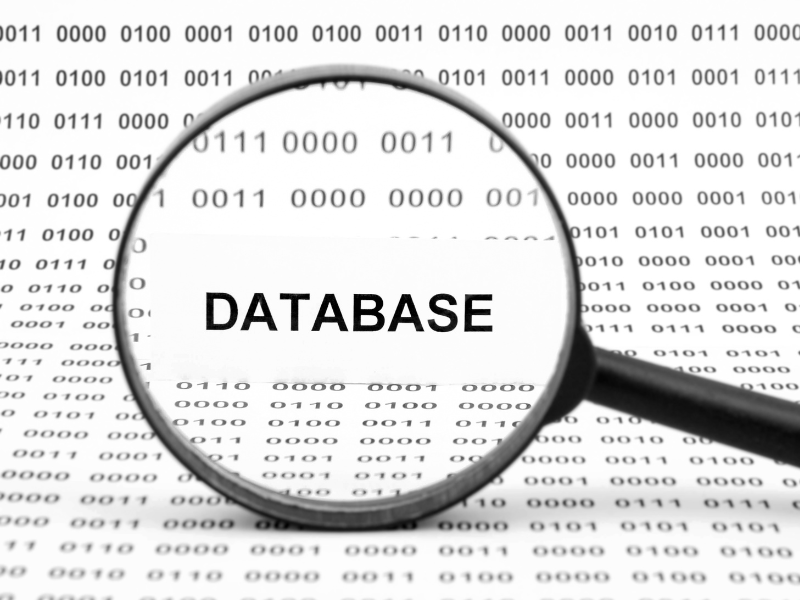As data privacy laws grow stricter, the need for careful HIPAA compliance increases. Healthcare organizations should thoughtfully implement physical, technical, and administrative safeguards in all their software. This guide focuses on HIPAA database compliance and its importance.
Table of Contents

The Growing Importance of Databases in Healthcare
As the healthcare industry increasingly digitizes, more information is being stored, processed, and accessed online. If your healthcare organization maintains patient records, billing information, and other medical forms, you understand the need to keep an organized, easily accessible, yet highly secure database.
When the volume and complexity of online healthcare data grow, the need for reliable and HIPAA-compliant cloud databases also grows.
Why Healthcare Needs HIPAA-Compliant Databases
HIPAA outlines patient privacy and data security guidelines in the healthcare industry. Ensuring that databases comply with HIPAA is a legal concern and a way to safeguard individuals’ protected health information (PHI) in paper and digital formats.
If a covered entity, business associate, or subcontractor’s negligence exposes PHI to unauthorized persons, they will most likely face the legal consequences of a HIPAA violation. The legal repercussions, which include massive financial penalties, depend on the extent of the breach.
Secure software solutions, including HIPAA database providers, are better if you don’t want your healthcare organization or business to suffer these consequences.

Key Features of HIPAA-Compliant Databases
You have many choices for HIPAA website database services. Before you select one, make sure they offer the following features:
Business Associate Agreement (BAA)
Some database providers may advertise their solutions as “HIPAA-compliant.” However, if they cannot sign a BAA with you, they have no right to claim HIPAA compliance. The BAA, a legal document, is the proof that both parties agree to maintain HIPAA compliance. Check out this free business associate agreement template from iFax to give you an idea how a BAA looks like.
Encryption
HIPAA-compliant data storage solutions should employ the best encryption methods, such as 256-bit AES for protecting data at rest and TLS 1.2 or 1.3 for encrypting data in transit. Other encryption methods include PGP (Pretty Good Privacy) and RSA (Rivest-Shamir-Adleman) for authenticating digital signatures and protecting sensitive files in motion and at rest.
Access controls
Secure database services should provide features that let you restrict and manage access to your database. Role-based access control (RBAC) is the common HIPAA safeguard, allowing administrators to give access privileges to users who need the data to accomplish their jobs.
Audit logs
This feature lets administrators trace every interaction. It’s like a trail of breadcrumbs that documents who accessed the database, what actions were performed, and when they occurred. In case of a security incident, audit logs serve as forensic evidence to trace the source of the unauthorized activity.
Secure authentication
The common practice is using multi-factor authentication (MFA) or two-factor authentication (2FA), which requires users to provide multiple forms of identification. For instance, users will be asked for a password plus a unique code when logging in. Biometrics, smart cards or tokens, certificate-based authentication, and single sign-on (SSO) are additional forms of authentication used when accessing a HIPAA-compliant database.
Data backups and disaster recovery
Data loss can be catastrophic in healthcare. Access to patient information at all times is necessary to provide timely and accurate care. A HIPAA-compliant cloud database should have regular backups and a comprehensive disaster recovery plan. Should a natural disaster, hardware failure, or cyberattack occur, you can recover data quickly and avoid the consequences of permanent data loss.
Secure data centers
The facility that houses your computer systems, servers, and data storage should also be HIPAA-compliant. You can use a colocation service to save on the expense of having an on-premise data center.
Automatic logoffs
The database software should automatically log off once a session is abandoned or a workstation is left unattended. Automatic logoffs after a specified period of inactivity reduce the risk of unauthorized access, such as when a staff member forgets to log out manually.
Safeguarding PHI With a HIPAA-Compliant Database
Adopting HIPAA-compliant databases offers multiple benefits beyond meeting regulatory compliance, maintaining a positive reputation, and avoiding the repercussions of violating HIPAA rules. It keeps sensitive patient data confidential and secure, demonstrating your commitment to privacy. A HIPAA-compliant database also helps you manage high volumes of information efficiently, providing features for enhanced data security, faster data entry, and more organized digital storage.
That said, implementing a HIPAA-compliant database is not a one-time task. It requires ongoing maintenance, periodic security assessments, and regular HIPAA training for staff. You must also stay abreast of the latest HIPAA updates from the Department of Health and Human Services (HHS) if you want to successfully implement HIPAA compliance in your organization.








